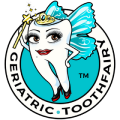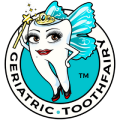Every day, seniors face an invisible challenge: maintaining their oral health. It’s not that they don’t want to care for their teeth and gums—it’s that they often feel like the odds are stacked against them. From financial barriers to physical limitations, senior dental care is often neglected or overlooked.
I see it every week. Seniors in nursing homes, assisted living facilities, and even at home, struggling with gum disease, tooth loss, and dry mouth—yet without proper care, these issues only worsen over time. The CDC estimates that nearly 70% of older adults suffer from gum disease, and a staggering 25% of seniors have untreated cavities. These numbers are not just statistics—they represent real people in pain, people who deserve better.
For ourselves and our families, we must address these issues head-on. As a dental professional and advocate, I’ve seen how a little support can go a long way. In this post, I’ll walk you through the top challenges in senior dental care and provide actionable steps to ensure every senior has the opportunity to maintain their dignity and health.
Table of Contents
Toggle1. Financial Barriers to Senior Dental Care
One of the biggest obstacles seniors face when it comes to dental care is the cost. Many older adults are on fixed incomes and cannot afford the out-of-pocket expenses for dental treatments, especially if they don’t have dental insurance. The CDC notes that nearly 40% of seniors have untreated tooth decay, largely because they cannot afford necessary treatments like fillings, extractions, or dentures.
But financial barriers don’t only stop at treatment costs. Preventive care, like regular cleanings or exams, is often seen as a luxury, not a necessity. The result? Pain, infections, and worsening dental issues that end up costing more in the long run.
How to Overcome Financial Barriers
- Advocate for dental insurance: Encourage seniors to explore programs that include dental benefits, such as Medicare Advantage plans or Medicaid, which may cover essential services.
- Find low-cost dental clinics: Look for community health centers that offer sliding scale fees based on income.
- Support funding for senior dental care: As advocates, we need to push for policies that increase access to affordable dental care for seniors.
When oral health issues are left untreated due to financial constraints, they lead to worse health outcomes, impacting the senior’s overall well-being. For ourselves and our families, we must fight for more affordable dental care.
2. Physical Limitations That Affect Dental Care
As people age, physical limitations become more prominent. Seniors suffering from conditions like arthritis,may find it difficult to hold a toothbrush or floss without experiencing pain. Poor mobility may also make it hard for them to visit a dentist for a check-up. For some, conditions like dementia or Alzheimers may result in confusion or resistance to dental care.
It is not just the act of brushing or flossing that is difficult. Dry mouth, often caused by medications, can make swallowing or even talking painful. Without enough saliva, bacteria thrive, leading to tooth decay and gum disease.
How to Overcome Physical Limitations
- Use adaptive tools: Special toothbrushes with thicker handles or electric toothbrushes can make brushing easier. There are also flossing aids that make it easier to clean between teeth.
- Encourage professional cleanings: Mobile dental hygiene services are a fantastic solution. These services bring professional care directly to seniors, ensuring they get their teeth cleaned regularly without the physical strain of a dentist visit.
- Create a comfortable routine: Help seniors establish a daily dental routine with gentle, non-threatening reminders. For seniors with dementia, creating a soothing, consistent routine can ease their anxiety about brushing and care.
If we want our seniors to retain their independence and dignity, we must address these physical barriers to proper oral care. It is essential for their well-being and overall quality of life.
3. Tooth Loss and Its Emotional Toll
Tooth loss can significantly affect the quality of life, but its impact goes far beyond just appearance. Missing teeth can make eating difficult, leading to malnutrition. But there’s an emotional toll, too. Seniors often experience depression and social isolation due to embarrassment about their smiles.
The NY Times reported that a study found tooth loss among older adults is linked to a higher rate of depression, due to the shame and frustration of not being able to chew properly or speak confidently. What many don’t realize is that tooth loss is not inevitable. Regular care, including proper cleaning, could prevent many cases of tooth loss.
How to Overcome Tooth Loss Challenges
- Explore dental prosthetics: Dentures and implants can restore confidence and improve function. Encourage seniors to discuss options with their dentists.
- Improve nutrition: Encourage seniors to eat soft foods that are easier to chew if they have missing teeth.
- Boost self-esteem: Remind seniors of the importance of their smile. A positive attitude about oral health can motivate them to care for their remaining teeth.
Tooth loss shouldn’t rob our seniors of their dignity. We must provide solutions that help them chew, smile, and engage in life with confidence.
4. Gum Disease and Its Long-Term Effects
Gum disease is one of the most common oral health issues in seniors, yet it often goes undiagnosed or untreated. According to the CDC, nearly 70% of adults aged 65 and older suffer from gum disease, that may lead to tooth loss, heart disease, and diabetes complications if left untreated.
But gum disease doesn’t have to be inevitable. It’s often preventable with regular brushing, flossing, and dental visits. Early detection is key, yet many seniors do not recognize the signs of gum disease until it’s too late. Swollen, bleeding gums, bad breath, or receding gums are all warning signs.
How to Overcome Gum Disease
- Daily brushing and flossing: Encourage seniors to brush twice a day and floss regularly to prevent plaque buildup.
- Regular checkups: Ensure seniors have regular dental checkups, especially if they show signs of gum disease. This can prevent the progression of the disease.
- Improve awareness: Educate families and caregivers about the signs of gum disease and the importance of early intervention.
Gum disease doesn’t just affect the mouth—it affects the entire body. For us and our families, we must make gum health a priority to avoid long-term complications.
5. Dry Mouth and the Risk of Decay
Dry mouth, often caused by regular medications, is another overlooked problem that affects seniors. If the secretion of saliva decreases, the mouth becomes dry, which then leads to an increase in bacteria, plaque buildup, and tooth decay. Persons taking medications for heart disease, high blood pressure, or diabetes are particularly at risk for dry mouth.
Unfortunately, many seniors don’t recognize that dry mouth is a serious issue—it’s not just an uncomfortable feeling, but a precursor to more severe oral health problems. The WHO highlights the need for regular saliva checks as part of senior healthcare. Yet many health systems still neglect this critical aspect of oral care.
How to Overcome Dry Mouth
- Encourage hydration: Ensure seniors drink plenty of water throughout the day to help keep their mouths moist.
- Use saliva substitutes: There are products like saliva substitutes or mouthwashes designed for dry mouth. Ask the dentist for recommendations.
- Chew sugar-free gum: This can stimulate saliva production, which helps to protect the teeth and gums.
For seniors, dry mouth is not just an inconvenience, it is a real health risk. By addressing this issue early, we can prevent the escalation into tooth decay and gum disease.
For Ourselves and Our Families
Every senior deserves dignity in their later years, and oral health plays a huge role in preserving that dignity. The challenges outlined here—gum disease, tooth loss, financial barriers, and dry mouth—are real but not insurmountable. We have the power to help seniors regain their confidence, comfort, and quality of life.
We protect the health, happiness, and futures of our loved ones by addressing these issues head-on.
And for ourselves, we must advocate for better geriatric dental care to ensure that no one falls through the cracks.


